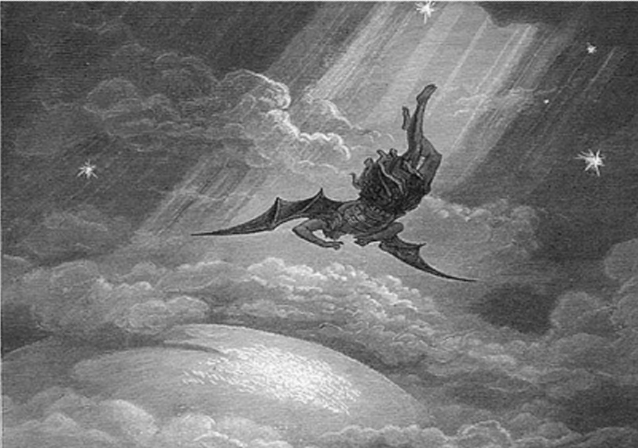Question
Gramps,
When we give Satan power through sins and iniquity, what power does Satan hold or wield? Members of the Church hold priesthood power. What then is the power Satan holds if he does not have priesthood power?
Iwika
Answer
Iwika,
Satan is frequently characterized as the “father of lies” (John 8:44), illustrating his primary method of leading individuals astray. His tactics often involve subtle suggestions that engender doubt and fear. In Latter-day Saint theology, it is understood that while Satan cannot force anyone to sin, he can entice individuals to make poor decisions through temptation.
The Book of Mormon teaches that individuals are free to choose liberty and eternal life through Jesus Christ or to choose captivity and death, a concept outlined in 2 Nephi 2:16. This scripture underlines the necessity of agency—an essential principle in Latter-day Saint beliefs. Satan’s role is to promote choices that lead to spiritual captivity, that undermine the freedom that God has granted to His children.
Satan’s ultimate objective is to thwart God’s plan of salvation. The scriptures vividly depict his rebellion against divine authority, particularly in the pre-mortal existence when he sought to save all souls through coercion, as described in Moses 4:3-4. This rebellion not only highlights his opposition to God’s plan but also shows his desire to destroy the agency of man, which is vital for spiritual progression.
In the Book of Mormon, the story of Korihor serves as a poignant example of Satan’s influence. Korihor, inspired by the adversary, preached against Christ and led many astray, as recounted in Alma 30:60. This narrative illustrates how Satan uses individuals to spread doubt and disbelief, further reinforcing his role as an adversary to God’s purposes.
Fear and doubt are among Satan’s most effective tools in undermining faith. Modern prophets have repeatedly warned Church members about the adversary’s tactics. President Gordon B. Hinckley remarked, “The adversary… seeks to destroy our faith and confidence in God” (Teachings of Gordon B. Hinckley, p. 228). This statement sums up the essence of how Satan operates, manipulating emotions to create confusion and despair.
Latter-day Saints believe understanding one’s divine identity as a child of God is crucial for resisting the adversary’s influence. Recognizing that they are loved and valued by God empowers individuals to stand firm against fear and doubt, which are often the precursors to sin.
Central to Latter-day Saint theology is the principle of agency—the ability to choose between good and evil. This doctrine is foundational, ensuring that individuals are accountable for their decisions. Although Satan’s influence is pervasive, it remains limited by the agency bestowed upon humanity. As outlined in Doctrine and Covenants 76:25-26, Satan and his followers continue to exert influence in the spirit world, seeking to lead souls away from the truth. However, the power of choice remains a divine gift that cannot be overridden.
The concept of agency is not merely theoretical; it plays a critical role in the spiritual struggle between good and evil. Individuals are encouraged to exercise their agency wisely, choosing to follow Christ and resist the temptations that Satan presents.
Faith in Jesus Christ and reliance on His Atonement are essential tools in overcoming the adversary’s influence. In 1 Peter 5:8-9, believers are urged to be vigilant against the adversary, underscoring the necessity of maintaining a strong spiritual foundation. By fostering a deep relationship with Jesus Christ, members of the Church can better defend themselves against the various forms of manipulation that Satan employs.
Moreover, modern prophets emphasize the importance of prayer, scripture study, and obedience to God’s commandments as ways to strengthen faith. These practices serve as protective measures against the deceptions of the adversary, empowering individuals to make choices aligned with God’s will
In summary, while Satan does not possess priesthood power, which is reserved for worthy male members of the Church, he wields considerable influence through temptation, deception, and the instillation of fear and doubt. His tactics aim to undermine faith and lead individuals away from the path of righteousness. However, Latter-day Saints are taught to recognize his strategies and to rely on their faith, agency, and the teachings of Jesus Christ to resist his influence.
Gramps







